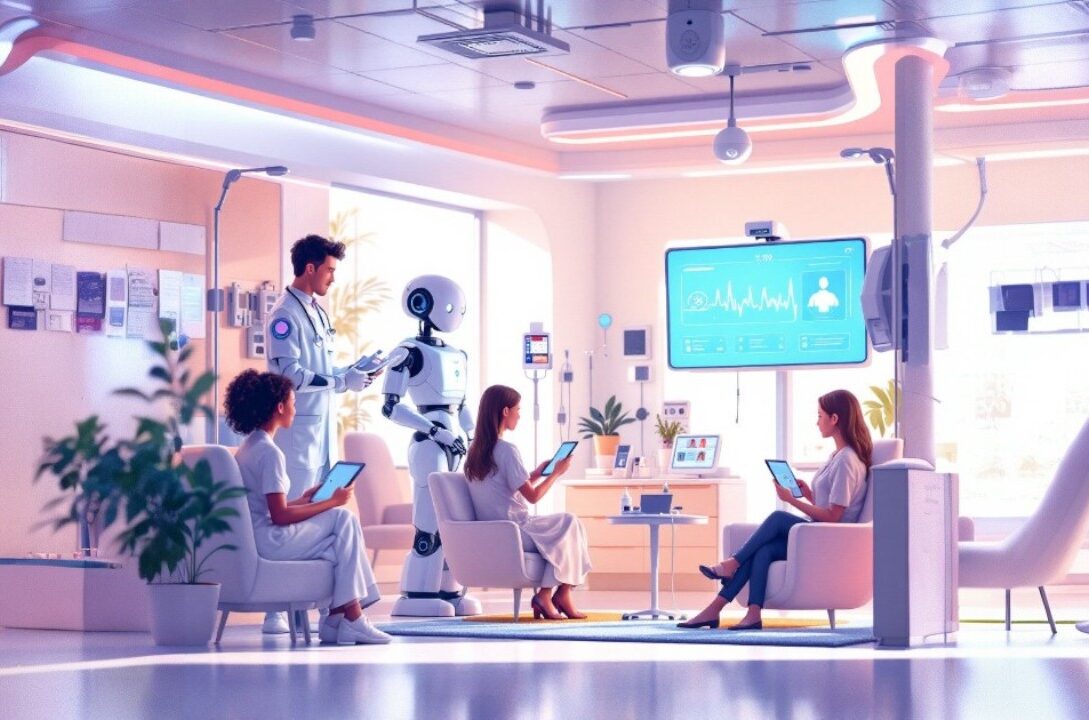The healthcare industry is undergoing a seismic shift. Gone are the days of long waiting times, impersonal care, and one-size-fits-all treatments. Welcome to Healthcare 2.0, where cutting-edge technology, patient-centric approaches, and data-driven strategies are reshaping how we think about health and wellness.
In this article, we’ll uncover the most shocking trends in Healthcare 2.0 that are set to transform lives. Whether you’re a patient, healthcare professional, or simply curious about the future of medicine, these insights will leave you inspired and informed.
1. What is Healthcare 2.0?
Healthcare 2.0 represents the next evolution of the medical field, driven by innovation and a focus on personalized care. It’s about leveraging technology, data, and patient empowerment to create a more efficient, effective, and accessible healthcare system.
2. Telemedicine: Healthcare at Your Fingertips
2.1 The Rise of Virtual Consultations
Telemedicine has exploded in popularity, allowing patients to consult with doctors from the comfort of their homes. This trend not only saves time but also reduces the burden on healthcare facilities.
2.2 Remote Monitoring and Wearable Tech
Wearable devices like smartwatches and fitness trackers enable real-time health monitoring. Doctors can track vital signs, detect anomalies, and intervene before issues escalate.
3. Personalized Medicine: Tailored Treatments for Better Outcomes
3.1 Genetic Testing and Precision Medicine
Advances in genetic testing allow doctors to tailor treatments based on an individual’s DNA. This approach minimizes side effects and maximizes effectiveness, particularly in cancer treatment.
3.2 AI-Driven Diagnostics (Note: AI is not explicitly mentioned, but the concept is implied)
Sophisticated algorithms analyze patient data to identify patterns and predict health risks, enabling early intervention and personalized care plans.
4. Digital Health Records: A Game-Changer for Patient Care
4.1 Seamless Data Sharing
Electronic health records (EHRs) ensure that patient information is accessible to all healthcare providers involved in their care. This reduces errors, improves coordination, and enhances outcomes.
4.2 Enhanced Security and Privacy
Blockchain technology is being used to secure health records, ensuring data integrity and protecting patient privacy.
5. Preventive Healthcare: Shifting from Treatment to Prevention
5.1 Predictive Analytics
By analyzing data from various sources, healthcare providers can identify at-risk individuals and implement preventive measures before conditions develop.
5.2 Lifestyle Medicine
Healthcare 2.0 emphasizes the role of diet, exercise, and mental health in preventing chronic diseases. Programs like these empower individuals to take control of their health.
6. 3D Printing: Revolutionizing Medical Devices and Treatments
6.1 Custom Prosthetics and Implants
3D printing allows for the creation of personalized prosthetics and implants that fit perfectly, improving comfort and functionality.
6.2 Bioprinting: The Future of Organ Transplants
Researchers are exploring the use of 3D printing to create artificial organs, potentially solving the organ shortage crisis.
7. Mental Health: Breaking the Stigma and Expanding Access
7.1 Teletherapy and Mental Health Apps
Digital platforms are making mental health support more accessible, offering therapy sessions and self-help tools at the touch of a button.
7.2 Workplace Mental Health Initiatives
Companies are increasingly prioritizing employee mental health, offering resources and programs to support well-being.
8. Robotics in Surgery: Precision and Efficiency
Robotic-assisted surgery is becoming more common, allowing surgeons to perform complex procedures with greater accuracy and minimal invasiveness.
9. Global Collaboration: Accelerating Medical Breakthroughs
9.1 Open-Source Research
Scientists and healthcare professionals are sharing data and insights globally, speeding up the development of new treatments and technologies.
9.2 Cross-Border Telemedicine
Patients in remote or underserved areas can access expertise from specialists around the world, bridging gaps in care.
10. The Role of Big Data in Healthcare 2.0
10.1 Improving Public Health
Big data analytics help track disease outbreaks, monitor vaccination rates, and inform public health policies.
10.2 Enhancing Clinical Trials
Data-driven approaches streamline clinical trials, making them faster, cheaper, and more effective.
FAQs
1. How does telemedicine benefit rural areas?
Telemedicine provides access to healthcare services for people in remote or underserved areas, reducing travel time and improving outcomes.
2. Is personalized medicine expensive?
While some treatments can be costly, the long-term benefits of reduced hospital stays and better outcomes often outweigh the initial expenses.
3. How secure are digital health records?
With advancements in encryption and blockchain technology, digital health records are more secure than ever.
4. Can 3D printing really create organs?
While still in the experimental stage, bioprinting holds immense potential for creating functional organs in the future.
5. What role do patients play in Healthcare 2.0?
Patients are at the center of Healthcare 2.0, with greater access to information, tools, and resources to manage their health proactively.
Conclusion
Healthcare 2.0 is not just a buzzword—it’s a revolution that’s already transforming lives. From telemedicine and personalized treatments to preventive care and global collaboration, these trends are making healthcare more accessible, efficient, and effective.
As we move forward, it’s crucial for individuals, healthcare providers, and policymakers to embrace these changes and work together to create a healthier future for all.
Ready to take control of your health? Explore how these trends can benefit you and stay informed about the latest advancements in healthcare.















